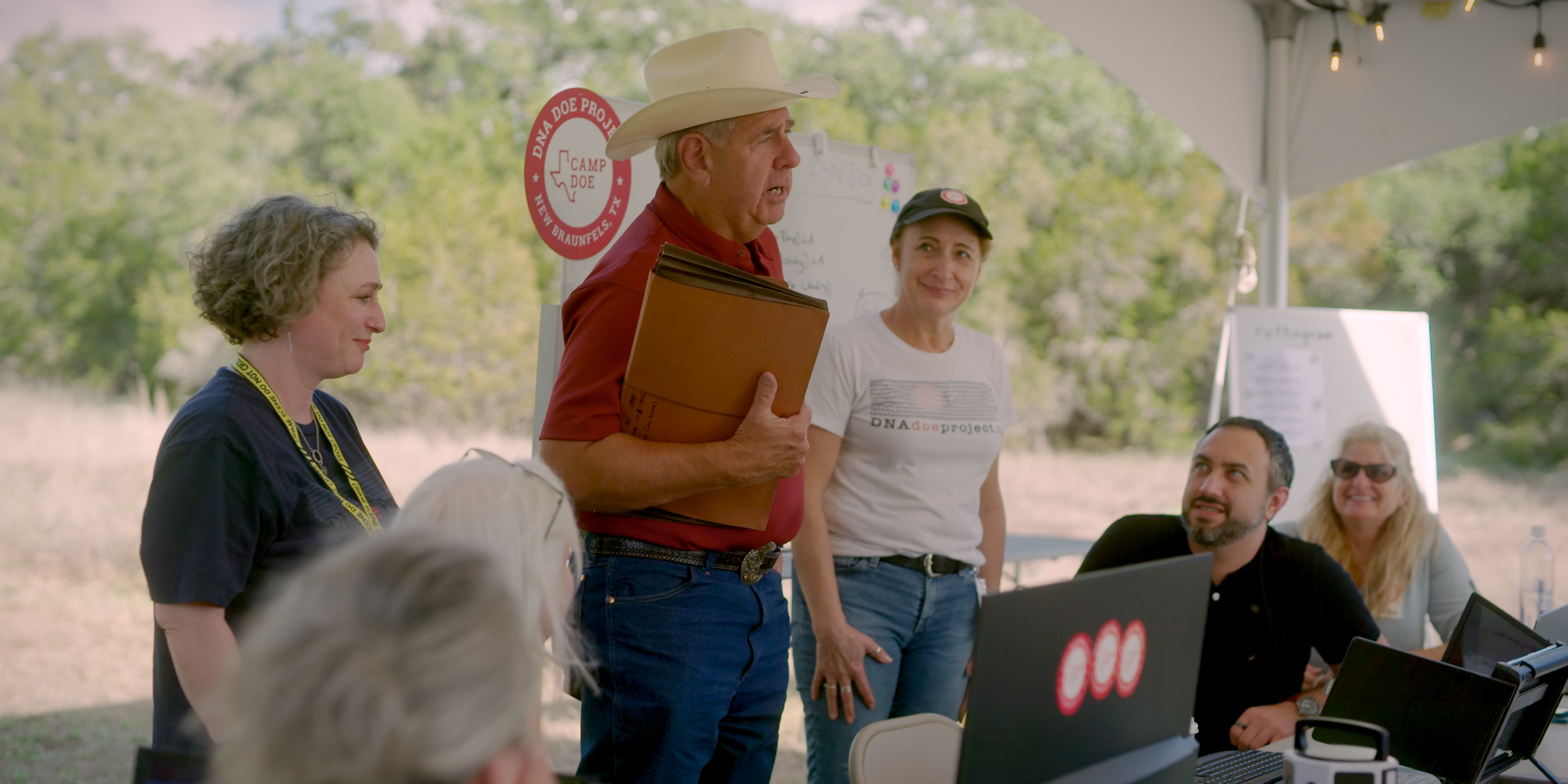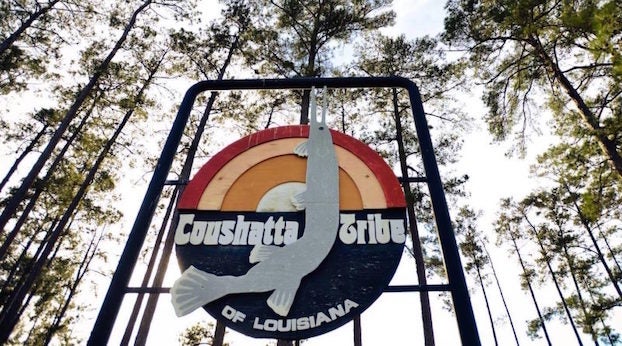Romero, Abraham discuss upcoming fiscal session at legislative breakfast
Published 3:18 pm Wednesday, March 1, 2023

- District 37 Rep. Troy Romero discusses plans for the upcoming legislative session with Jim Wright of Welsh as Becky Hudson looks on Tuesday during the Jeff Davis Parish Chamber of Commerce’s annual legislative breakfast in Jennings. Romero and District 25 Sen. Mark Abraham presented a preview of what state lawmakers will face during the upcoming fiscal session which begins in April. (Doris Maricle / American Press Archives)
State spending and other fiscal matters will be among issues lawmakers are expected to face during the upcoming legislative session.
District 37 Rep. Troy Romero and District 25 Sen. Mark Abraham discussed the upcoming fiscal session during the Jeff Davis Parish Chamber of Commerce’s annual legislative breakfast Tuesday at the Sowela Technical Community College-Morgan Smith campus in Jennings
“For about a month now we have attended meetings and it gets pretty lengthy before we go into session,” Romero said. “Everybody wants your ear before you go in so they can tell you what their needs are, what they might need during the session or a bill they would like to see you run. “
Trending
The session, which begins April 10 in Baton Rouge, will be limited to monetary matters, with a few exceptions, Romero said.
Romero, who sits on the Appropriations Committee, said the state is “flushed” with money provided by the federal government as a result of the pandemic and hurricanes.
“We are going to have to be very, very careful about how we spend those dollars,” Romero cautioned. “Each one of those dollars are precious and they will not be here forever.”
The state faced a similar situation with fiscal shortfalls and a false economy following Hurricane Katrina, he said.
“We don’t want that to happen again,” Romero said. “We need to try to figure out how to level that and make it so we don’t have to do a whole lot of cuts three years down the road.”
Education and health would likely bear the brunt of those cuts, he said.
Trending
The state had a nearly $800 million surplus last year with most of the money dedicated by law to the state’s rainy day fund, unfunded accrued liability and capital project infrastructure.
This year year the state has a $900 million excess – not a surplus yet- which will allow legislators to spend the money “any way they want to” in the operating budget,” Abraham said. Budget projections for next year show another $600 million in excess funds are expected.
“This session we are going to have $1.5 billion to spend and everybody wants their part of that money,” Abraham said. “They are going to say, ‘Wait a minute, you give this group money, but you are not going to give to us. Why are we less important than them?’ It’s a very difficult situation to go through to see who gets the money and who doesn’t.”
Education is among those areas who could see the greatest increase in funding. But Abraham cautioned about relying on one-time money for recurring expenses like teacher pay raises.
“…. We have to be careful how we spend that money because we don’t necessarily have it every year,” he said.
A 0.45 percent increase in sales taxes is expected to end in 2025 which could lead to a revenue shortfall of nearly $450 million. More than $300 million in vehicle sales tax revenues have also been removed from the state’s financial coffer.
The governor is proposing spending $200 million to fund annual pay raises for teachers and support workers along with increased funding for early childhood education and higher education and the community college system.
Abraham said the state also has billions of dollars in highway infrastructure improvements which need to be addressed. The projects include a new Calcasieu River Bridge, a new Baton Rouge bridge and extension of I-49 north and south.
“It would change the face of Louisiana if we had $400 or $500 million coming in every year for roads and bridges,” Abraham said.





